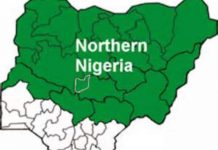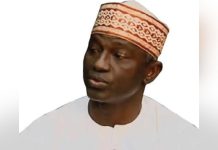Nigeria’s total debt profile as at December 31, 2018 has risen to N24.387 trillion ($79.437 billion).
Director-General of the Debt Management Office (DMO), Patience Oniha, who made the revelation at a news briefing in Abuja, yesterday, said the figure rose by 12.25 per cent from N21.725 trillion in 2017.
According to her, the figure comprises foreign and local debts of the federal, states, local government and the Federal Capital Territory.
She revealed that the Federal Government’s domestic debt stock included N331.12 billion promissory notes issued to oil marketing companies and state governments in December 2018.
Total external and domestic debt for federal, states and the FCT stands at N24.387 billion as at December 31, 2018. It was N21.725 billion by December 31, 2017.
She noted more progress was made towards achieving the target debt stock mix of 60 per cent (domestic) and 40 per cent (external).
“The share of domestic debt dropped to 68.18 per cent from 73.36 per cent as at December 31, 2017 thereby achieving a mix of 68.18 per cent and 31.82 per cent in the debt stock.
“The strategy of using relatively cheaper and longer tenored external funds is achieving the expected objectives. Some of the objectives were to create more space for other borrowers in the domestic market, extend the average tenor of the debt stock in order to reduce refinancing risk and increase external reserves.
“The implementation of the strategy led to an injection of N855 billion through the redemption of Nigerian treasury bills in 2018 and a general drop in the FGN’s borrowing rate in the domestic market from over 18 per cent per annum in 2017 to 14 – 15 per cent per annum in 2018,”
The DMO boss revealed that some of its major plans in 2019 were to undertake more of project-tied borrowing and access more external borrowing from concessional sources.
She announced plans to issue 30-year Federal Government of Nigeria Bonds (FGN Bonds) for the first time.
“The issuance of the bond will meet the needs of annuity funds and other long term investors while also developing the domestic capital market and reducing the re-financing risk of the FGN.
“Another area of focus will be the management of risks associated with the Debt Stock to mitigate debt service costs.
“Borrowing for the 2019 will be 50/50 split between domestic and external borrowing, which is consistent with the debt management strategy aimed at achieving 60/40 ratio between domestic and external debt,” she stated.
Oniha said Federal Government has a sound mechanism where it monitors the states borrowing to ensure they are not suffocated by huge debt.
“There are guidelines for borrowing for states. They can’t borrow from external sources. The government does that for them. In repayment, we have a law that allows us take money directly from FAAC.
“Total borrowing is defined by debt service and should not be more than 40 per cent of their debt service. We have control system in place. They have their audited accounts and we can access them to know if they can borrow or not.
“There’s compliance that commercial banks should inform the government before borrowing to States. We’ve checks and balances”, the DMO boss explained.
In their separate reactions, Mr. Muda Yusuf, director general, Lagos Chamber of Commerce and Industry (LCCI), Mr. Kurfi Garba, Managing Director, APT Securities and Dr. Oladimeji Alo, former director-general, Financial Institutions Training Centre (FITC), said the debt overhang portend unsavoury omen for the economy.
Yusuf said the county is already experiencing the pressure because over N2 trillion has been earmarked for debt service in the 2019 budget.
‘‘Imagine what N2 trillion can do in infrastructure, provision of schools, roads, healthcare facilities at a time when about a quarter of that is what is allocated to power and some ministries for capital expenditure. So, it is no doubt that it brings a lot of pressure on the finances of government because it deprives the economy of investment in building valuable infrastructure that can build the capacity of the economy.
Yusuf said it equally remained troubling when the level of borrowing is measured by the amount of finances that come into government coffers as revenue, saying the country’s revenue base is so weak because government is unable to fund a lot of its basic project obligation as a result of debt, saying, debt servicing is a first line charge.
He said what makes the borrowings more disturbing is that they are used in running the business of government and not for any concrete projects or infrastructure.
He said the country should slow down on borrowings and issuance of treasury bills while it should partner with the private sector to develop infrastructure, saying it is not all projects that government should spend on.
According to Garba, the amount Nigeria spends on servicing debt is higher than what it spends on capital expenditure
Hear him: “It is glaring enough from the budget because over N2 trillion from the budget (22-25 per cent) is set aside to service this debt and keep some part of it.
“If 22-25 per cent is just for service and debt, then the issue is really big and it portends further crisis to the economy. The amount Nigeria spends on servicing the debt is more than what we are spending on capital expenditure and capital expenditure is the expenditure that triggers the economy which in turn brings the changes we all crave for. So, the debt soaring by that figure is a huge amount that is kept and set aside just to service debt. If we are not servicing debt, the money would have been set aside for projects or infrastructure but with this situation on ground, it means that infrastructures would be on hold and with it being on hold, the economy would now move at a much slower pace.”
For Alo, the rate at which the nations debt is growing calls for worries.
Debt, according to the former boss of FITC, has always been a concern in terms of the ratio of the debt to GDP.
“How much of your revenue do you spend on servicing debt? And lately in the last two to three years, it has been a source of concerns to us in Nigeria. They spending substantial part of our income on servicing debt. But with that flip side, as in other transactions like businesses, etc, there is nothing wrong in debt, it is a question of what you spend the debt on.
“When you acquire new debt or you grow your debt, the question is what do you spend the debt on? Are you investing it in infrastructure that would create future stream of income? Or you are borrowing to pay salaries, throw parties or run recurrent expenditure?”
Alo noted that the challenge the nation had in the past was that its borrowing was not deployed to the things that would generate streams of income in the future.
Worried by the fact that chunk of the nation’s resources go into corruption, Alo wondered if the nation’s borrowings is not ending up in some private pockets.
“Are you borrowing for the people to take the money?” he queried.
“If you look at country like the US, its debt profiles horrendous.And debt to equity is very high. It is about the highest in the world. But it is not a concern to them because such debts are used to create future wealth like investment in infrastructure and the stuff like that.”
Meanwhile, Managing Director of Cowry Assets Limited, Mr. Johnson Chukwu, has advised government to review its strategies for funding debt, stating that at current levels of revenue, the government cannot continue to fund infrastructure from budgetary allocations.







